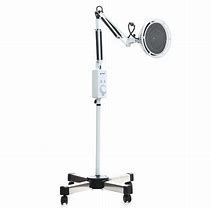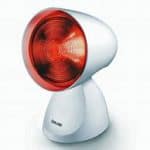Last Updated on 1 year by Francis
Electromagnetic field (EMF) levels refer to the measure of the amount and strength of electromagnetic radiation emitted by electronic devices, power lines, and other sources of electromagnetism. These levels are measured in volts per meter (V/m) or milliwatts per square meter (mW/m²) and are used to determine potential health hazards associated with prolonged exposure to electromagnetic radiation. In this article, we will dive into the concept of EMF levels and their significance in our daily lives.
Contents
EMF Levels: What Are They?
EMF, or electromagnetic fields, are a type of energy that is produced when an electric current flows. This energy can be found in many different forms, such as radio waves, microwaves, infrared radiation, and visible light. While EMF is a natural part of the world around us, it can also be produced by man-made devices, such as cell phones, Wi-Fi routers, and power lines.
When we talk about EMF levels, we are referring to the amount of electromagnetic energy that is present in a given area. This energy is measured in units called “milligauss” or “microtesla.” In general, the higher the EMF levels, the more electromagnetic energy is present in a given area.
How Do EMF Levels Affect Our Health?
There is still much debate about the exact effects of EMF levels on our health. While some studies have suggested that exposure to high levels of EMF can lead to health problems, such as cancer and neurological disorders, other studies have found no such link.
It is important to note that the effects of EMF exposure can vary depending on a number of factors, such as the type of EMF, the duration of exposure, and the distance from the source of the EMF. Some people are more sensitive to EMF exposure than others, and may experience symptoms such as headaches, dizziness, and fatigue as a result of exposure to high levels of EMF.
## Different Types of EMF Levels
There are several different types of EMF levels that we may encounter in our daily lives. These include:
Key Takeaway: EMF, or electromagnetic fields, are a type of energy that can be found in many different forms, such as radio waves, microwaves, infrared radiation, and visible light. While the effects of EMF exposure on our health are still being studied, it is important to limit our exposure to high levels of EMF by practicing good sleep hygiene, using EMF protection devices, and limiting our exposure to sources of EMF such as cell phones, Wi-Fi routers, and power lines.
Extremely Low Frequency (ELF) EMF
ELF EMF is a type of electromagnetic energy that is produced by power lines, electrical appliances, and other similar sources. While the effects of ELF EMF on our health are still being studied, some studies have suggested that exposure to high levels of ELF EMF may increase the risk of certain types of cancer.
Radiofrequency (RF) EMF
RF EMF is a type of electromagnetic energy that is produced by cell phones, Wi-Fi routers, and other wireless devices. While the effects of RF EMF on our health are still being studied, some studies have suggested that long-term exposure to high levels of RF EMF may increase the risk of certain types of cancer and other health problems.
Ionizing EMF
Ionizing EMF is a type of electromagnetic energy that is produced by X-rays, gamma rays, and other high-energy sources. Exposure to high levels of ionizing EMF can be dangerous and can increase the risk of cancer and other health problems.
How to Protect Yourself from EMF Exposure
While the effects of EMF exposure on our health are still being studied, there are some steps that you can take to help protect yourself from exposure to high levels of EMF. These include:
Limiting Your Exposure
One of the easiest ways to reduce your exposure to EMF is to limit the amount of time that you spend near sources of EMF, such as cell phones, Wi-Fi routers, and power lines. You may also want to consider turning off your Wi-Fi router at night, or using a wired connection instead of a wireless connection.
Using EMF Protection Devices
There are a number of EMF protection devices available on the market that are designed to help reduce your exposure to EMF. These devices include EMF blocking phone cases, EMF shielding blankets, and EMF blocking jewelry.
Practicing Good Sleep Hygiene
Finally, it is important to practice good sleep hygiene in order to help your body rest and recover from exposure to EMF. This can include limiting your exposure to electronic devices before bedtime, using blackout curtains to block out light, and keeping your bedroom cool and quiet.
FAQs for the topic: What is EMF levels?
What are EMF levels?
EMF stands for electromagnetic fields that are generated by electronic devices. EMF levels refer to the strength or intensity of the electromagnetic fields emitted by these devices. Different electronic devices emit different levels of EMF, thus having the potential to affect our health.
Is EMF harmful to health?
The scientific community is still divided on whether EMF from electronic devices can cause harm to human health. Some studies indicate that prolonged exposure to high levels of EMF could increase the risk of cancer, other illnesses, and impact sleep quality. However, other studies show no significant impact on human health.
How can I measure EMF levels in my home or workplace?
You can use an EMF meter, which is a handheld device that measures EMF levels in various environments. You can find EMF meters online or at an electronics store. These meters can measure EMF levels from electronic devices, power lines, and other sources of electromagnetic radiation.
What are the safe levels of EMF?
The safe levels of EMF are not uniform as different countries have different recommendations. However, most countries follow the guidelines set forth by the International Commission on Non-Ionizing Radiation Protection (ICNIRP), which includes limits on EMF exposure based on the frequency and field strength of the radiation. The ICNIRP guidelines are regularly revised and updated as new research becomes available.
What can I do to reduce my exposure to EMF levels?
You can take simple steps to reduce your exposure to EMF levels, such as keeping electronic devices away from your bed and wearing a headset while using a cell phone. You can also reduce your exposure by using traditional landline phones instead of cell phones for extended conversations, and limiting your use of electronic devices in general.
Conclusion
EMF levels are an important factor to consider when it comes to the safety of electronic devices. Although the scientific community is still divided on the potential health effects of prolonged EMF exposure, taking simple steps to reduce your exposure to EMF levels can help reduce your potential risks. If you are concerned about EMF levels in your environment, you can measure them using an EMF meter and take appropriate measures to reduce your exposure.


.jpg)


